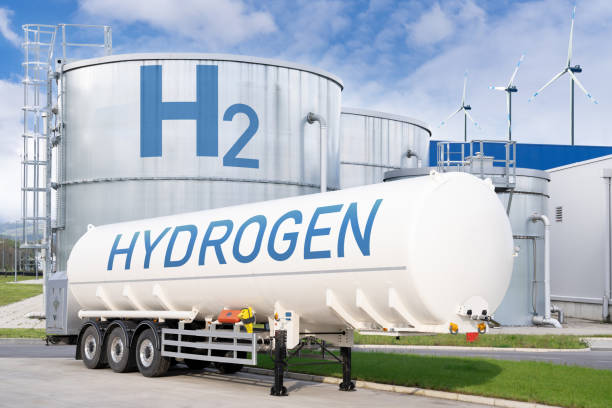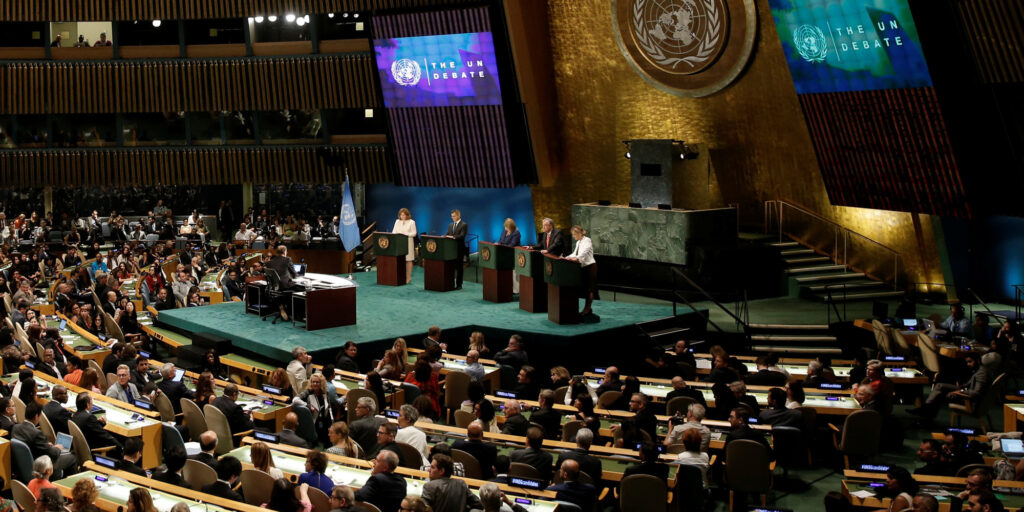Nigeria has made remarkable advancements in integrating hydrogen goals into its national energy strategies. However, these goals are contained in distinct documents in various government offices. Presently, no institution assumes exclusive responsibility for managing all aspects of the country’s green hydrogen energy agenda. Instead, multiple government bodies undertake diverse roles within the energy sector. This highlights the urgent need for Nigeria to develop a comprehensive hydrogen development strategy.
The recent synthesis report from the GIZ Nigeria Energy Support Program outlined the roles and obligations of various agencies in Nigeria regarding hydrogen production. This includes entities with explicit hydrogen targets and those expected to have such mandates but currently do not. The report also indicates that the National Energy Policy (NEP), the National Energy Master Plan (NEMP), and the Energy Transition Plan (ETP) included provisions for H2 in Nigeria’s decarbonization strategy.
The above situation calls for an urgent need to fill this conspicuous gap of the absence of a unified strategy specifically targeting hydrogen development. As other countries are already embarking on hydrogen strategies, Nigeria risks being left behind unless it swiftly formulates and implements its comprehensive plan for hydrogen utilization. Drawing insights from international experiences, particularly those of Australia, the European Union (EU), Germany, Saudi Arabia, Namibia, and South Africa, Nigeria can leverage the lessons and tailor a strategy that aligns with its unique context and aspirations.
Learning from Global Experiences
Australia, for instance, emphasizes the production and export of hydrogen while concurrently addressing domestic consumption needs. Australia aims to build cost-competitive production capabilities and stimulate global markets through phased implementation and establishment of hydrogen hubs. Similarly, the EU’s strategy prioritizes investments, research, and international cooperation, setting phased targets for hydrogen deployment while fostering demand through strategic partnerships and financial mechanisms such as the European Hydrogen Bank.
Germany was focusing on its robust governance structure and targeted funding programs to support domestic and international hydrogen initiatives. They use mechanisms like the H2Global program, and Germany incentivizes investment to foster market competitiveness. Meanwhile, Saudi Arabia leverages its abundant renewable energy potential to pioneer green hydrogen production, strategically positioning itself in the global hydrogen economy. Namibia and South Africa also leverage the significance of coordinated efforts and strategic planning in realizing their hydrogen ambitions with clear goals, governance frameworks, and funding mechanisms in place.
The Imperative for Nigeria’s Hydrogen Strategy
Against this backdrop, Nigeria’s absence of a cohesive hydrogen development strategy becomes increasingly glaring. Despite having individual policies touching on energy and sustainability, there is a pressing need for a unified approach that explicitly addresses hydrogen utilization. A comprehensive hydrogen strategy, referred to as “The Hydrogen Document,” would serve as a roadmap to harmonize existing policies, capitalize on Nigeria’s vast renewable energy potential, and position the country as a critical player in the global hydrogen market.
Recommendations
• Policy Harmonization: The Hydrogen Document would consolidate and align existing energy and sustainability policies incorporating hydrogen elements. This may be done by streamlining efforts and ensuring coherence across sectors. By this, Nigeria can maximize the impact of its initiatives and avoid duplication of efforts.
• Stakeholder Engagement: Engaging stakeholders from government, industry, academia, and civil society is paramount. Establishing advisory councils similar to Germany’s National Hydrogen Council would ensure diverse expertise and perspectives are considered in strategy formulation and implementation.
• Investment Framework: Like the EU’s European Hydrogen Bank and Germany’s H2Global program, Nigeria should establish mechanisms to incentivize investment in hydrogen projects. Public-private partnerships and innovative financing models can mobilize capital and mitigate investment risks.
• Research and Innovation: A robust research and innovation ecosystem is essential for technological advancements and market competitiveness. As demonstrated by Australia and the EU, collaboration with international partners can accelerate knowledge transfer and capacity building.
• Capacity Building: Developing a skilled workforce capable of driving Nigeria’s hydrogen agenda is critical. Training programs, knowledge-sharing platforms, and educational partnerships will nurture talent and foster innovation in the hydrogen sector.
• International Cooperation: Engaging with global hydrogen initiatives and forging partnerships with leading hydrogen-producing nations will facilitate knowledge exchange, market access, and technology transfer.
Conclusion
With the existing hydrogen road map and strategies by other countries, Nigeria stands a better chance to draw inspiration from international experiences. With this, the government can chart a path towards a hydrogen-powered future. The formulation and implementation of a comprehensive hydrogen strategy, encapsulated in “The Hydrogen Document,” will harmonize existing policies and catalyze investment, innovation, and socioeconomic growth for the nation and its people. Now is the time for Nigeria to seize the opportunity and embrace the hydrogen revolution.
Author
Omata David
Technical Associate- Nextier Power



